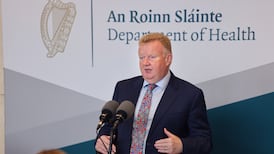A new campaign aims to tacklethe disparity in cancer care across Europe.Barry O'Keeffe reports
A campaign to lobby governments across Europe to standardise cancer care, thus ensuring people get the best treatment regardless of where they live, has been launched in Brussels.
The campaign, which has attracted some controversy because of the involvement of a pharmaceutical company (see panel) aims to collect up to one million signatures in 27 European states over the next two years calling for standardised cancer services.
Research has shown that survival rates are better among those who havethe best access to treatment for the disease. The campaign, called Cancer United, believes access to quality cancer care varies from country to country. For example, it maintains that if you live in Spain, you are far more likely to be able to access the latest therapies than if you live in Britain.
It says it will conduct a "fact- finding mission" across Europe over the next 18 months and will present its findings to the European Commission and the Council of Ministers and the European Parliament.
The cancer campaign's chairman, Prof John Smyth, called it a "unique coalition of healthcare advocates, which included healthcare professionals, patients groups and, most importantly, industry".
Prof Smyth, who is chairman of the Scientific Advisory Committee for Oncology for the UK Licensing Authorities, stressed that the very success of cancer research over the past 15 years "has given us a way to diagnose cancer in a way we never did before".
He said "we need to set the bar in terms of managing cancer in different countries" and that all states should develop a national cancer plan.
Cancer is the second-biggest killer in the EU, after cardiovascular diseases, and the incidence of the disease will rise by 25 per cent by 2020, "which is not too far away", according to Rifat Atun, professor of international health management and director of centre for health management, Imperial College, London.
He looked at cancer statistics across the 27 EU countries, including Bulgaria and Romania, who are due to join the EU, and said cancer would account for 2.1 million deaths by 2020, up 21 per cent on current figures of 1.7 million deaths per year.
However, Atun said survival rates had improved across the European states (up by 9 per cent from 1994-2004), but he said this did not show the variation in survival rates.
For example, it was far better in western Europe (up 10 per cent) compared with eastern Europe (around 3 per cent) during the period.
He said the complexity of managing the condition had increased the need to collect data on it. He said no country had specific hard data on the direct and indirect costs of cancer. He added that the resources allocated to combating cancer in Europe "are lower than expected" and averages hide inequalities. He said these resources were not being used in an efficient manner.
"The management of cancer is complicated and involves a variety of factors including good screening, prevention programmes, high quality care, good quality palliative care and good communication between the health professionals an the patient," he said
Prof Smyth said rapid access to services was one key to combating cancer, but that this was not enough, there should be up-to-date information on treatments, etc and sufficient resources. "Above all, there should also be time to explain cancer to patients. Lack of time is not the fault of healthcare professionals."
Tom Hudson, chairman of Europa Uoma, the European Prostate Coalition and former Irish Cancer Society (ICS) chief executive, said Ireland now had a very good cancer strategy which the ICS had helped to draw up. He said it was now up to the Irish Government to implement it.
A member of Cancer United's executive board, he said the campaign was about raising standards of cancer care. "Cancer services are patchy," he said, "and the same standards are not being applied everywhere. We should all be able to learn from one another and bring pressure on those who can take action and raise standards of care."
Prof Smyth said the Cancer United campaign was not going to make a huge change in two years, but it would do everything to "open the debate" about cancer services.
"We are confident that we will be able to make some inroads," he said.
"How big? We will just have to wait and see."








